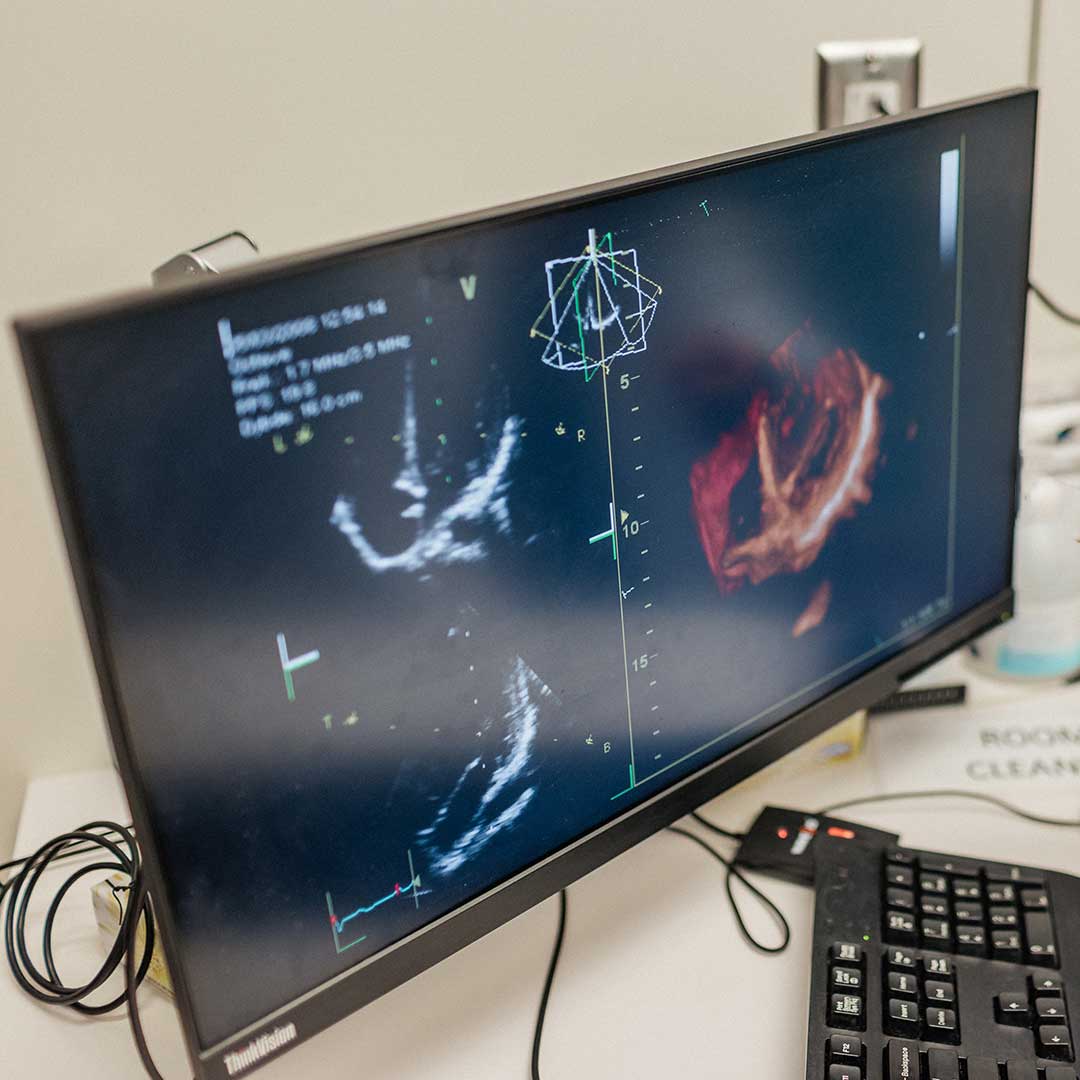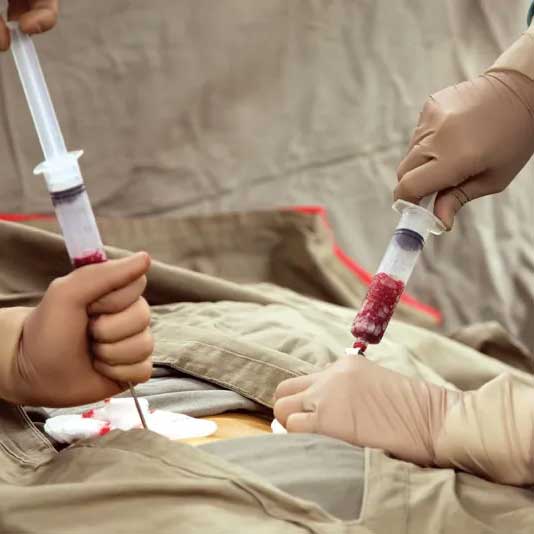Along with the doctor’s questions about your medical history and symptoms and a physical examination, different tests are used to assess cardiac amyloidosis. Your medical team may order various blood, urine, and imaging tests to gather more information about your condition. Here are some of the tests they might order for you:
TESTING AND TREATMENT IN AMYLOIDOSIS
Blood and urine tests
BNP or NT-proBNP
BNP stands for a protein called ‘B-type natriuretic peptide.’ This protein is made by the muscles in the heart. NT-proBNP is another protein that is produced when BNP is formed. Both of these proteins increase in amyloidosis and other types of heart disease. They go up when the heart gets stretched because of extra fluid (called ‘congestion’), when amyloidosis gets worse, or if the kidneys are not working well.
Troponin
This is a protein made by the muscles in your heart. In patients with amyloidosis, it is usually a little higher than normal and it increases as the disease gets worse. It can also be higher in other heart diseases, like heart attacks.
Kidney function and electrolytes
Creatinine and glomerular filtration rate (GFR) are tests that show how well your kidneys are working. Sodium and potassium are electrolytes in your body that the kidneys help control. These tests are often done when you start taking new medications, especially ones that can affect how well your kidneys work and the levels of potassium in your body.
Blood and urine protein tests
Serum protein electrophoresis (SPEP), urine protein electrophoresis (UPEP), and serum free light chains (SFLC) are tests that check for unusual proteins in your blood or urine. These tests are usually done to diagnose amyloidosis and find out which protein is causing it. If an abnormal protein is found in your blood or urine, you may need more tests to determine if it’s causing your heart disease.

Imaging and electrical tests
These tests help doctors evaluate the structure, function, and electrical activity of the heart in individuals suspected of having cardiac amyloidosis, allowing for a more accurate diagnosis and appropriate management of the condition.
Echocardiogram
This test uses sound waves to create pictures of your heart. It helps the doctor see the size, shape, and how well your heart is working. In a patient with possible cardiac amyloidosis, an echocardiogram can show if the heart muscles are thickened or if there are any problems with the heart’s pumping ability.
Cardiac MRI
This is a special type of scan that takes detailed pictures of your heart using magnetic fields. It provides more information about the structure and function of your heart. In a patient with possible cardiac amyloidosis, a cardiac MRI can help identify any abnormal deposits in the heart and assess the extent of damage.
Technetium pyrophosphate scan
This is a nuclear medicine test that involves injecting a small amount of radioactive material into your bloodstream. It helps detect abnormal protein deposits in the heart. In a patient with possible cardiac amyloidosis, a technetium pyrophosphate scan can show if there are amyloid deposits in the heart muscle.
ECG (Electrocardiogram)
This is a simple and painless test that measures the electrical activity of your heart. It involves attaching small sticky patches called electrodes to your chest, arms, and legs. In a patient with possible cardiac amyloidosis, an ECG can show any abnormal heart rhythms or electrical changes that may be associated with the condition.
Holter monitor
This is a portable device that continuously records your heart’s electrical activity over a 24-hour period. It is worn on the body, and you can go about your usual activities while it records the data. In a patient with possible cardiac amyloidosis, a Holter monitor can provide more information about your heart’s rhythm and detect any irregularities that may occur throughout the day.

Biopsy
Heart biopsy
This test, also known as an ‘endomyocardial biopsy,’ involves a cardiologist inserting a small plastic tube into a vein on the right side of your neck. Then, they gently pass a thin wire into your heart to collect tiny samples of the heart muscle. These samples are examined under a microscope to check for amyloid protein. If the protein is found, special tests can determine what type of protein it is.
Bone marrow biopsy
This test might be ordered by a blood specialist to look for abnormal blood cells that could be making an amyloid protein.
Amyloidosis treatment
The treatment for amyloidosis has two main goals: to reduce the symptoms that happen because of amyloidosis and to prevent the amyloid protein from building up in the heart and other organs.
Image credit: sqadia.com
Symptom treatment
- Treating the symptoms of cardiac amyloidosis usually involves the following:
- Preventing fluid build-up by reducing salt and fluid intake in the diet, monitoring body weight changes, and taking diuretic medications (sometimes called ‘water pills’).
- Avoiding certain medications that can worsen symptoms in people with amyloidosis.
- Treating abnormal heart rhythms with medications to regulate heart rate and prevent complications like stroke.
- Sometimes using medications, electrical shock (cardioversion), or procedures to restore a normal heart rhythm.
- Using pacemakers or other implantable heart devices when necessary.
- Occasionally using medications to prevent low blood pressure.
Disease-modifying treatments
Different treatments are available to prevent further build-up of amyloid protein, depending on the type of amyloid protein present. These treatments may slow down or stop the disease from progressing in many cases. Your medical team will discuss whether these treatments are suitable for you.
Lifestyle treatments
Your medical team will provide important recommendations on lifestyle, including diet and exercise. They might refer you to a special exercise program called cardiac rehabilitation. This program is designed for individuals living with heart disease to improve physical endurance and strength.
Other specialist referrals
You may also be referred to other specialists to help manage different aspects of your condition. These specialists could include blood specialists (hematology), nerve specialists (neurology), digestive system specialists (gastroenterology), kidney specialists (nephrology),elderly medicine specialists (geriatric medicine) or palliative care specialists.
Contact Us
Email: info@amyloidosis.com
Phone: 604 875-5759
Fax: 604 875-4265
St Paul Address:
5 C/D-5th Floor, Providence Building
1081 Burrard Street
Vancouver BC
V6Z 1Y6
VGH Address:
Gordon and Leslie Diamond Health Care Centre
2775 Laurel St., 9th Floor
Vancouver BC
V5Z 1M9

